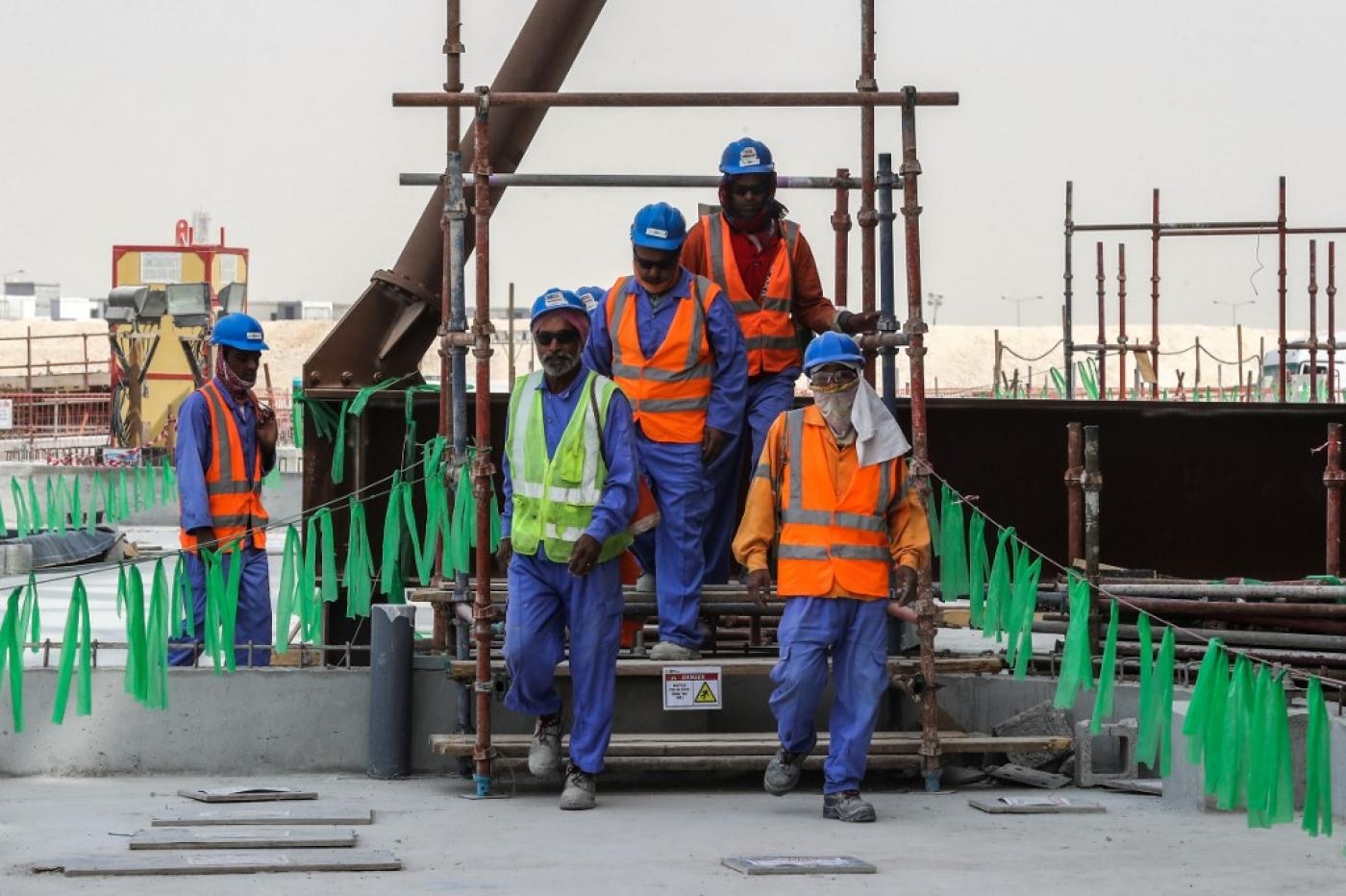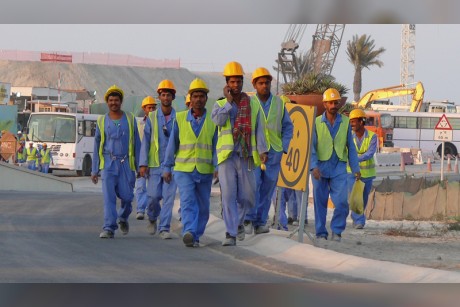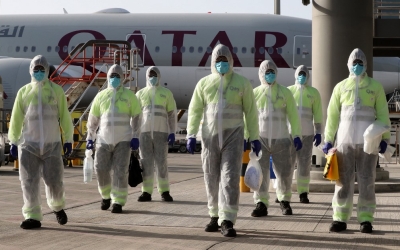
Workers on a construction project for a multi-million dollar FIFA World Cup stadium in Qatar have been unpaid for seven months, according to a report by Amnesty International.
The rights group said that at least 100 employees working for the Qatar Meta Coats (QMC), a company tasked with helping build the $847m Al Bayt Stadium, have not been paid.
Amnesty said workers told them the salary delays began in 2019 and were exacerbated in 2020 as the country went into lockdown because of the coronavirus.
Some QMC workers were paid part of what was owed them after Amnesty raised the issue with FIFA and the Qatari authorities, but many say they are still owed substantial amounts.
‘For years we have been urging Qatar to reform the system but clearly change has not come fast enough’
– Stephen Cockburn, Amnesty
Daniel, a father of three and a QMC employee, told Amnesty that workers had been fed lies over the delays in salaries for several months. “We had more than 50 promises. They would call and say ‘next week’,” said Daniel.
“But it is empty promises, about 50 to 100 promises, and they are all empty! I don’t think they will pay us. I don’t know why.”
Expatriate workers comprise most of the population of Qatar, and the vast majority of the country’s coronavirus cases have come from crowded migrant worker accommodations in Doha’s Industrial Area.
Qatar’s Supreme Committee for Delivery and Legacy, the body tasked with overseeing Qatar’s 2022 World Cup construction, did not respond to queries by Reuters on whether Covid-19 infections were affecting World Cup workers.
‘Exploitation still rife’
Stephen Cockburn, Amnesty International’s head of economic and social justice department, said in a statement that delays in salaries had impacted remittances home for the workers, many of whom hail from the global south.
“Migrant workers told us about the hardships they endured, having worked without pay on Al Bayt Stadium for months on end. They are worried about their families, who rely on the money they send home from Qatar to pay school fees and medical bills,” said Cockburn.
“This case is the latest damning illustration of how easy it still is to exploit workers in Qatar, even when they are building one of the crown jewels of the World Cup. For years, we have been urging Qatar to reform the system, but clearly change has not come fast enough.”
Ninety percent of Qatar’s 2.75 million people are expatriates. Many are from developing countries and working on projects linked to the tournament’s stadium construction, which has mostly continued even as other businesses have shuttered because of the coronavirus.
QMC eventually stopped work on the stadium, and in February moved workers to accommodations in the Industrial Area of Doha, where they live in cramped rooms, shared by six workers.
Most were reassigned to the QMC factory, which makes aluminium and steel materials bound for the Al Bayt Stadium, according to the workers.
While the workers went to the factory, they were later confined to their quarters after lockdown measures were introduced because of Covid-19.
Most of them interviewed by Amnesty said QMC had also failed to renew their workers’ residency permits, putting them at risk of deportation and detention.
Under Qatar’s kafala system, employers must provide workers with residency permits to justify their legal presence in the country, and grant them “no objection” permissions if they wish to change jobs.
QMC told Amnesty that it had been unable to renew workers’ legal documentation amid financial difficulties.
Still, the construction company denied claims that it had blocked workers from getting the “no objection” certificates, documents required to allow them to change jobs in Qatar.
Source: Middle East Eye






